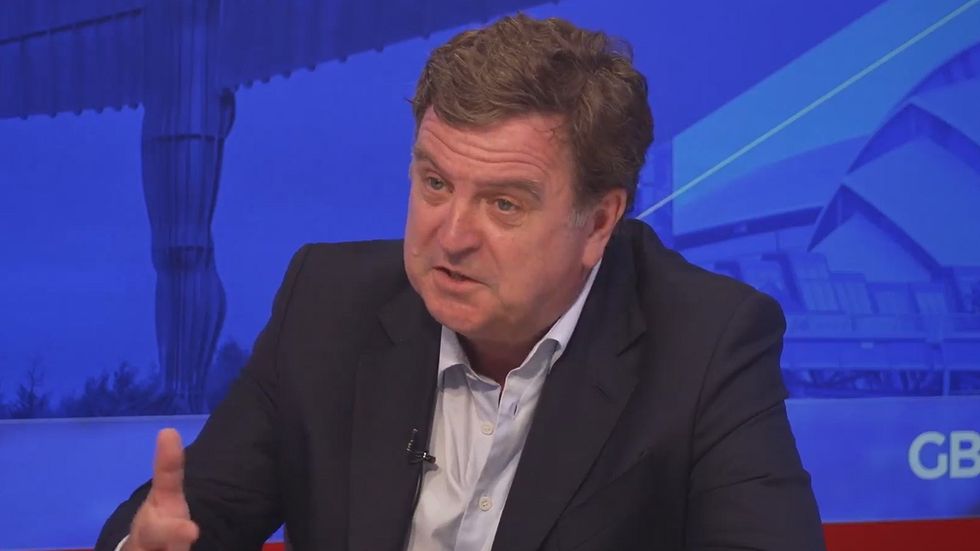Young workers taking up their initial permanent employment could receive a tax benefit worth £5,000 under proposals being revealed by the Conservative Party today.
This overhaul would see National Insurance payments partially diverted into dedicated savings accounts to assist with property purchases.
Earlier this afternoon, Shadow Chancellor Sir Mel Stride presented the “first-job bonus” initiative during his address at the party’s Manchester gathering this afternoon.
The proposal aims to support aspiring homeowners in accumulating funds for their initial property deposits with Tories maintaining the scheme would be financed through substantial reductions in Government expenditure totalling £47billion across a five-year period.

Benefit system expenditure would face the largest reduction at £23billion, while the civil service workforce would shrink from 517,000 to 384,000 positions, matching 2016 staffing levels and saving £8billion.
International development spending would be cut by £7 billion, with an additional £3.5billion saved by ending hotel accommodation for asylum seekers.
The plan includes restricting benefit payments and social housing access exclusively to British nationals, generating £4billion in savings.
Environmental programmes would also face cuts, with £1.6billion saved through eliminating subsidies for heat pumps and electric vehicle purchases.

Mr Stride told Conservative Party delegates: “We must get on top of Government spending. We cannot deliver stability unless we live within our means.”
The Shadow Chancellor positioned the Tories as the sole party committed to budgetary discipline, stating: “We’re the only party that gets it. The only party that will stand up for fiscal responsibility.”
Mr Stride specifically cautioned against continued excessive expenditure, warning that there can be “no more pretending we can keep spending money we simply do not have”.
The Manchester conference marks nearly twelve months since Kemi Badenoch assumed party leadership, with new polling suggesting half of Conservative Party members do not want her leading the Tories into the next General Election.
The announcement coincides with Labour’s comprehensive housing market overhaul, which ministers describe as the most substantial reforms in decades. The government’s changes aim to reduce costs and delays whilst cutting failed property transactions by half.
Ms Badenoch face significant electoral pressures, including mounting competition from Reform UK and substantial losses in this year’s local elections. The party hopes its Manchester conference will help reshape public perception and establish credibility on economic management.
National Insurance has been a topic of contention recently following Chancellor Rachel Reeves’s decision to raise the rate paid in employer contributions to 15 per cent in April.
Jim Moore, employee relations expert at HR consultants previously told Hamilton Nash, said: “Not only has the rate of employer National Insurance contributions risen, the threshold at which these contributions are payable has fallen from £9,100 to £5,000.
LATEST DEVELOPMENTS:
- Tax warning: Britons warned over ‘double taxation’ as Rachel Reeves eyes fresh hike
- Full council tax relief: Are you entitled to a 100% discount?
- How to legally earn more than £27,000 tax-free in 2025

“This is a double-whammy for employers already grappling with wage pressures, higher borrowing costs and energy bills. These increases add further strain to already wafer-thin margins in some sectors, especially hospitality.
“The risk is that this will not just make it harder for employers to create jobs, it could also lead to redundancies. The increase in the government’s Employment Allowance may help the smallest of employers, but larger employers face a steep increase in their employment costs.
“Some employers are already planning redundancies to offset these costs, while others are restructuring to outsource functions or pivoting towards self-employed contractors. This will be a bitter pill for an economy crying out for growth, and a potential nail in the coffin for hospitality businesses already barely able to stay afloat.
“If a struggling business increases prices to cover rising costs, but the customer is unwilling or unable to pay more, you just lose customers. Ironically, the price increase therefore causes your revenue to go down, not up – and you go under. The government is making the same mistake with these stealth tax increases.”
Rachel Reeves will deliver her Budget on 26 November, six weeks after the Conservative conference concludes.
Our Standards: The GB News Editorial Charter







Follow